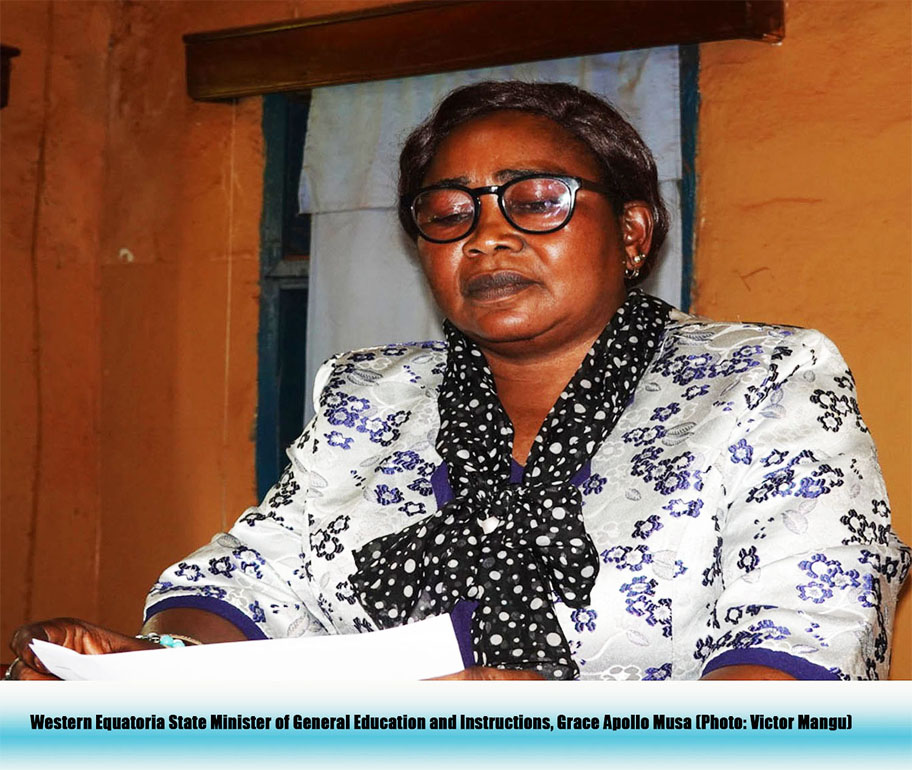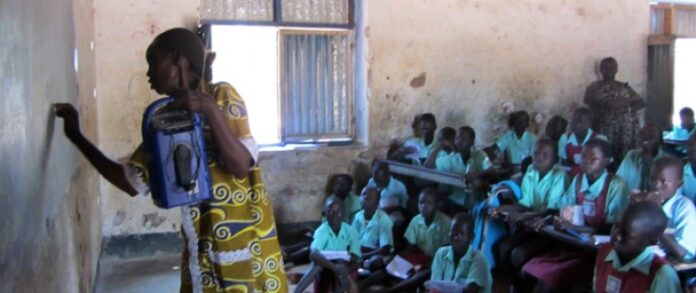In Western Equatoria State, South Sudan, a storm of controversy has erupted over the alleged misappropriation of 18 million South Sudanese pounds earmarked for teacher salaries. The suspension of the county education cashier, Peter John Mungo, has reignited debates surrounding corruption, transparency, and governance in a country grappling with systemic financial mismanagement.
The Allegations
The scandal emerged on September 3, 2024, when Gabriel Novlo Ferdinand, the County Commissioner of Nagero County, suspended Mungo over missing funds intended for primary and secondary school teachers. The 18 million South Sudanese pounds ($4,090.9) were reportedly allocated for teacher salaries for October 2023 but never reached some teachers in the county. Transparency International’s Corruption Perception Index
Despite confirmation that the education department had received the funds, many teachers, particularly those in Namutina Payam, have not been paid, leading to growing frustrations among educators. Commissioner Novlo highlighted these concerns, stating, “Some primary school teachers in Namutina Payam have not been paid their October 2023 salaries, with no clear justification.”
Mungo’s Defense
Peter John Mungo, who has served as the county education cashier since 2008, denies any wrongdoing. He claims that his suspension is politically motivated, accusing the county commissioner of attempting to extort a portion of the teacher salary funds.
“The Honorable County Commissioner called me repeatedly, demanding a share of the 18 million South Sudanese pounds meant for teacher salaries,” Mungo asserted. He explained that he refused the commissioner’s demands, insisting that any request for funds should be made in writing to ensure accountability.
Mungo added, “I told the county commissioner that I don’t have the authority to give him any amount without proper documentation. If he wanted a share, he should have made an official request, but no such letter ever arrived.”
However, County Commissioner Novlo denies Mungo’s allegations, stating that the suspension was ordered by the governor of Western Equatoria State, General Alfred Fotuyo Karaba.
“The governor gave me the order regarding the 18 million pounds and how it was used. It’s unclear where the money went, as some teachers have not received it,” Novlo explained, adding that Mungo’s suspension was “an order from above.”
Political Tensions and Financial Accountability
The county education director, Michael Payo, has described Mungo’s suspension as politically motivated, asserting that the funds were handled appropriately.
“This is a political issue,” Payo stated. “The cashier withdrew the money from the bank, and it was delivered to the county education department with all the necessary receipts,” Payo confirmed that he had given Mungo the go-ahead to distribute the salaries before departing for training in Western Bahr el Ghazal.
Despite these assurances, the conflicting narratives have left the fate of teachers’ salaries and accountability in limbo.
Ministry of Education Response
Grace Apollo Musa, the State Minister of Education for Western Equatoria, has weighed in, emphasizing the importance of transparency in the management of teacher salaries.
“It is essential that any missing funds related to teacher salaries are reported immediately. Transparency is crucial for maintaining trust in our education system,” Musa stated. She noted that, after consulting with the county education director, all teachers on the payroll had received their salaries, casting doubt on the claims of missing funds.

Musa further stressed that county commissioners should not interfere with the disbursement of teacher salaries.
“This money belongs to teachers, and no commissioner has the right to intervene in its distribution,” she warned.
Teachers Speak Out
Despite official assurances, some teachers in Western Equatoria report missing salaries. Boledi Alsandoro Stephen, a teacher at Ngoni Primary School in Duma Payam, expressed frustration after being excluded from the October 2024 salary list.
“Three of us did not receive our salaries for October, and we have not been given a clear reason why,” Stephen lamented.
He noted that while he had received his salaries for August and September, the delay in October payments has caused significant financial hardship for him and his family.
Baptist Francis, a head teacher at Saint Daniel Primary School in Nagero Center, echoed these concerns. Out of nine teachers at his school, one female teacher was also excluded from the October pay list.
“When teachers don’t receive their salaries, their motivation suffers. It becomes difficult to encourage them when they are struggling financially,” Francis explained, calling on the county education director to address the issue promptly.
A Broader Crisis
This incident is not isolated. South Sudan has long struggled with corruption and mismanagement, particularly in the education sector. In 2020, teachers in Jonglei State went on strike over unpaid incentives, accusing the government of misappropriating funds provided by the European Union. The incentives were intended to supplement the low salaries of teachers, but much of the money was diverted to other uses by the state government.
The issue of mismanagement of teacher salaries is reflective of the broader challenges of governance in South Sudan. According to Transparency International, South Sudan ranks among the most corrupt countries globally, with public sector corruption affecting every level of government and institution.
A Call for Reform
As teachers in Western Equatoria await resolution, the need for systemic reform in South Sudan’s education sector has never been more pressing. Addressing corruption and ensuring financial transparency is critical to improving education, boosting teacher morale, and providing students with the learning environment they deserve.
Until these challenges are addressed, the future of South Sudan’s education system remains uncertain.





